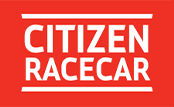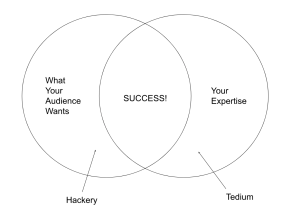Here’s a statistic for you: somewhere in the neighborhood of 3.2 million podcast series have been published and remain available for listening. Of those, 44%—nearly a million and a half—published fewer than four episodes and then stopped forever.
It’s heartbreaking, really—all of that enthusiasm to begin, a promising idea, then poof… done. It’s particularly sad because a new podcast cannot get real visibility without a critical mass of episodes. Many of these series presumably shut down because they didn’t show the momentum their creators wanted, but without a more substantial start there was no way for that momentum to build.
So why does this happen? Why do people begin the project of podcasting and then give up? The short answer is that podcasting is hard. Or, at least, harder than many people think it will be. Many successful podcasts seem very loose and off-the-cuff, but portraying that attitude confidently and consistently actually takes a lot of work to achieve. There are plenty of podcasting hardware and software packages that promise simple one-step production, but no series worth listening to has ever been made by hitting record then hitting stop and publish 30 minutes later. There are many steps, and each one takes time and attention.
The good news is that whether you’re starting a new series or reviving a show from the podcast graveyard, with a little good sense and smart effort early in the process, you can set yourself up for long-term success.
First, plan to plan. No matter your budget or the size of your audience, your podcast is a media stream, with the same expectation as any radio or TV show or web series: the audience has to feel that consuming it is time well spent. They have to care enough about it to give over the time for listening. Creating a show like that doesn’t just happen; it has to be done thoughtfully.
Begin by carefully thinking about your subject. What will you be talking about and why? It’s amazing how many new shows fail to consider this question. This results in podcasts that are amorphous and vague—sort of about everything and therefore actually about nothing. Nothing could be more boring to listen to.
To prevent this, start, always, by thinking about your intended audience. Who are they? What do they like? What do they care about? Make a Venn diagram in your mind of what they want and what you feel qualified to deliver. The topic for your show has to be in the middle, or they will not respond to it.
And as you’re considering this, get specific. Good stories are about details, not generalities, and if you try to say too much you will soon run out of things to say. It’s counterintuitive, but you will have a much easier time thinking of what the next twenty episodes should be about in a podcast about “baseball in the 1800s in suburban Pittsburgh” than you will for a podcast about “sports”.
When you’ve found the right subject, consider format: would that information best be conveyed by interviews? Or monologues? Or some kind of documentary? How can I create something that is not just informative and entertaining but also novel? A podcast that presents information in a way people haven’t heard before—a different structure, a different point of view—will always stand a better chance of success than one that sounds the same as a hundred other shows.
Next, think about timelines. Nothing is more stressful than the drumbeat of week-to-week production. “It’s Monday, the show is coming out Thursday, what should it be about?” is the swan song of a dying series. I almost always recommend working in seasons—planning a reasonable number of episodes, be it five or ten or twenty, planning and producing them, then releasing them while planning the next batch. This breaks up the work into reasonable chunks, builds in breaks and pauses to consider improvements, and gives you exciting new things to promote—”Season Three launches next week!” makes a more compelling press release than “there will be another episode next Thursday like there was last Thursday and the Thursday before”.
Also carefully consider workload. The greatest podcast killer is underestimating the labor involved. Who is going to do what and when? Do you really have the bandwidth to do the planning and scheduling? Do you have the skills to do the post-production? Are you a good story editor, or could you use help there, too? Time is money, and as the old saying goes, if you think it’s expensive to hire someone, wait until you see how expensive it is to do it yourself. Far better to contract solid professionals who will work with you to make something really good and keep it going long enough to find real success than stab out on your own and flounder. If you do make the decision to bring in outside help, bring them in early. Good podcast producers will help you through all the steps above and make sure you’re making good decisions for every one of them.
Finally, make promotion part of your plan. If you only build it, they will not come. Successful audience building is a combination of many things: social media campaigns, grass-roots tools like eblasts and meetups, paid advertising, and traditional PR. The more of these you’re doing the better chance you have of building an audience. Even if you’re on a shoestring, build in a budget—both of money and of time—for some or all of these things. If the work creating nice social media assets isn’t built in to your production timeline, you won’t have them when you need them.
The barrier for entry into podcasting is much lower than just about any other stream of media you could produce—so by all means, carpe diem and begin!—but success still depends on thoughtful planning. Care and consideration at the beginning of the process is the best way to avoid joining the Dead Podcasts Society.
(David Hoffman is the Founder & Principal of CitizenRacecar)






